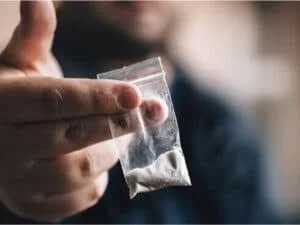- 1 - #understanding-cocaine-scent - Understanding the Scent of Cocaine
- 2 - #cocaine-vs-perfume - Does Cocaine Smell Like Perfume?
- 3 - #factors-affecting-cocaine-smell - Factors That Affect the Smell of Cocaine
- 4 - #how-cocaine-smell-changes - How Cocaine's Smell Can Change Over Time
- 5 - #identifying-cocaine-smell - Identifying Cocaine Based on Its Scent
1. Understanding the Scent of Cocaine
Cocaine is a powerful stimulant drug known for its stimulating effects on the central nervous system. But for many people, a lesser-known aspect of cocaine is its scent. People often wonder whether cocaine smells like perfume, or if it has its own unique odor. In this article, we will explore what cocaine actually smells like and how it differs from other substances, including perfumes.
2. Does Cocaine Smell Like Perfume?
While perfumes are created with specific scents to appeal to our senses, cocaine does not smell like perfume. In fact, cocaine has a distinctly different odor that is not typically associated with pleasant fragrances. Pure cocaine powder, in its uncut form, typically has a subtle, somewhat chemical scent. This odor might be described as slightly medicinal or like the smell of chemicals used in the manufacturing process.
In contrast, perfumes are designed to smell pleasant, with floral, fruity, woody, or musky notes. Cocaine’s scent does not carry these pleasant qualities, which makes it starkly different from any kind of perfume. The smell of cocaine may also be stronger when it’s in its raw, unprocessed form, while cut cocaine (which has been mixed with other substances) might have a more diluted or altered scent.
3. Factors That Affect the Smell of Cocaine
Several factors can influence the smell of cocaine. These include:
- Purity: Higher purity cocaine tends to have a stronger, more distinct odor, while lower purity cocaine, which is mixed with other substances, might have a less noticeable smell.
- Cutting agents: Cocaine is often "cut" with other substances to increase the quantity, and these cutting agents can affect the overall scent. Common cutting agents, like lactose or talcum powder, may alter the natural smell of cocaine, making it more difficult to identify.
- Storage conditions: The way cocaine is stored can also impact its smell. Exposure to heat, light, or air can change the chemical properties of cocaine and affect its scent.
4. How Cocaine's Smell Can Change Over Time
The smell of cocaine can change over time, especially if it is improperly stored. When exposed to moisture or air, the substance can degrade, which may alter its odor. A fresh batch of cocaine will typically have a more noticeable scent, but over time, as the cocaine dries out or is exposed to various environmental factors, the scent can become less potent or change entirely. In some cases, the smell may become sour or musty if the substance has been compromised.
5. Identifying Cocaine Based on Its Scent
While it’s difficult to compare the scent of cocaine directly to other substances like perfume, there are ways to identify cocaine based on its smell. Cocaine typically has a distinctive, chemical-like odor that is not commonly found in other substances. People who are familiar with the smell of cocaine may be able to recognize it by its sharp, sometimes medicinal scent.
However, it's important to note that identifying cocaine based solely on smell is not recommended as a sole method for detection. The substance can be cut with other chemicals or adulterants, making it harder to identify. Law enforcement and professionals typically use advanced methods such as field tests or lab analysis to confirm the presence of cocaine.
If you're concerned about the safety or legality of any substances you're encountering, it's always best to consult with professionals or seek expert guidance. At Rescue & Towing, we offer reliable services and advice on vehicle and substance safety. Be informed and make the right decisions when it comes to your safety and health.


0 comments